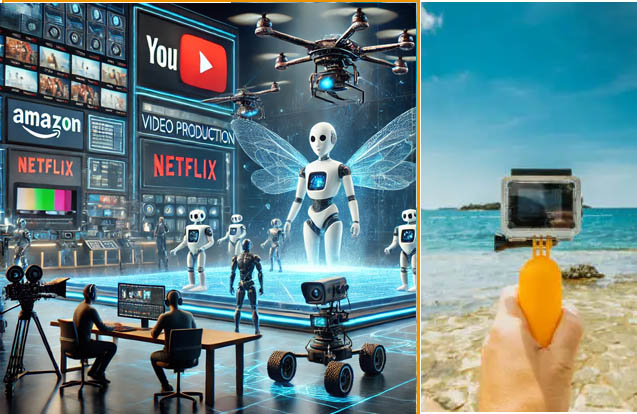
ByteDance's AI Incident: Impacts on Customer Service and the Rise of AI Agents
21-Oct-2024The recent news surrounding ByteDance, the parent company of TikTok, highlights the dual nature of the artificial intelligence (AI) landscape—one where innovation flourishes alongside the challenges of implementation. An incident involving the dismissal of an intern for “maliciously interfering” with the training of one of its AI models has drawn attention, showcasing the importance of maintaining integrity in AI development. As AI continues to permeate various industries, particularly in customer service, it is essential to explore both the technological advancements and the ethical considerations that arise from its rapid adoption.
ByteDance Incident: A Cautionary Tale
ByteDance's Doubao AI chatbot, which has become a leading generative AI model in China, recently faced internal strife due to the actions of an intern. This individual was accused of intentionally disrupting the AI model’s training process. Although initial reports suggested significant damage—exceeding $10 million—ByteDance clarified that the impact was minimal, emphasizing that the intern was not part of its AI Lab and that the company’s core AI operations remained unaffected.
The incident reflects broader concerns about the management of AI systems, where even minor internal disruptions can lead to exaggerated narratives in the media. As companies like ByteDance continue to innovate and lead in algorithm development, maintaining robust internal processes and oversight is critical to ensuring the integrity and reliability of their AI models.
The Rise of AI in Customer Service
Amidst its internal challenges, ByteDance is not alone in navigating the transformative wave of AI in customer service. Industries worldwide are increasingly leveraging AI to enhance operational efficiency and improve customer experiences. Companies are turning to generative AI models to replace outdated systems that often frustrate customers rather than assist them.
A Case Study: Sonos
A notable example is Sonos, a home-audio systems company that faced backlash over a flawed app update. To mitigate customer dissatisfaction, Sonos integrated a generative AI-powered bot from Sierra, a startup co-founded by Bret Taylor of OpenAI. This AI not only handled customer complaints effectively but also devised solutions for the app issues, showcasing the potential of AI to exceed traditional customer service capabilities.
The Transformative Potential of Generative AI
Generative AI is revolutionizing the customer service landscape, particularly in call centers where inefficient technology often leads to consumer frustration. Unlike traditional bots, generative AI creates personalized responses based on past interactions and company-specific data. This approach enables businesses to manage customer queries more efficiently, potentially reducing the need for extensive call center operations.
Companies like Crescendo and Twilio are capitalizing on these advancements by providing tools that support human agents or autonomously manage customer conversations. This shift promises to reshape the customer service industry, which has historically been characterized by high turnover rates and job dissatisfaction.
Job Displacement Concerns
While the benefits of AI in customer service are clear, concerns about job displacement loom large. Gartner predicts that AI could lead to a 20-30% reduction in customer-service jobs by 2026. Many companies are currently opting to use AI as an augmentation tool rather than a replacement for human agents, allowing remaining staff to focus on more meaningful tasks such as product improvement based on customer feedback.
However, the fear of reduced job opportunities persists, particularly in countries with large call center industries, such as India and the Philippines. As AI systems become more adept, the nature of customer service roles may evolve, prompting a need for reskilling and upskilling the workforce.
Skepticism Toward AI
Despite its potential, consumer skepticism about AI remains a significant barrier to its widespread adoption in customer service. Many customers express concerns about the lack of human interaction, particularly in complex or sensitive situations. Past failures, such as Air Canada’s chatbot mishap, underscore the need for AI systems to improve their accuracy and reliability, as delivering confident yet incorrect responses can erode consumer trust.
The Next Generation of AI: Beyond Chatbots
The evolving landscape of AI is shifting focus from basic chatbots to more sophisticated autonomous AI agents capable of executing complex tasks. These AI agents can manage a range of functions, from checking rental car reservations to screening sales leads. The success of these technologies hinges on their ability to operate with minimal human guidance while delivering reliable outcomes.
As businesses seek to optimize their AI investments, the emergence of specialized AI tools tailored to various industries becomes crucial. For instance, partnerships like the one between OpenAI and Bain & Co. aim to develop industry-specific solutions, such as AI-based inventory management tools for retailers and automated document generation for life sciences. These collaborations reflect a growing trend toward customized AI applications that cater to unique business needs.
OpenAI and Bain Partnership: A Shift in Focus
OpenAI, having recently expanded its partnership with Bain & Co., is positioning itself to provide tailored AI solutions across various sectors. With one million business customers already leveraging ChatGPT, the collaboration aims to enhance the AI capabilities of its clients through specialized tools designed for different industries.
Bain’s commitment to integrating AI into its operations is evident, with 30% of its revenue currently tied to technology and AI initiatives, a figure expected to rise. By focusing on providing customized AI solutions, both companies aim to navigate the complexities of AI adoption in business, ensuring that companies can maximize their investments and leverage AI for transformative purposes.
Navigating the AI Landscape
The rise of AI represents a dual-edged sword, offering significant opportunities for efficiency and transformation while also posing challenges related to job displacement and consumer trust. As companies like ByteDance and OpenAI continue to innovate, the importance of ethical considerations and robust internal processes cannot be overstated. The future of customer service and business operations will undoubtedly be shaped by AI, but success will depend on balancing technological advancements with human-centric approaches to ensure that businesses can thrive in this rapidly evolving landscape.
Tags: #AI #ArtificialIntelligence #CustomerService #Automation #Technology #ByteDance #TikTok #AIEthics #GenerativeAI #AIInBusiness #CustomerExperience #AITrends #TechNews #AIIncident #FinTech #CustomerSupport #DigitalTransformation #Innovation #TechForGood #FutureOfWork #BusinessGrowth #TechCommunity #DigitalEconomy #GlobalPostHeadline
Thank you for reading: Globalpostheadline.com





